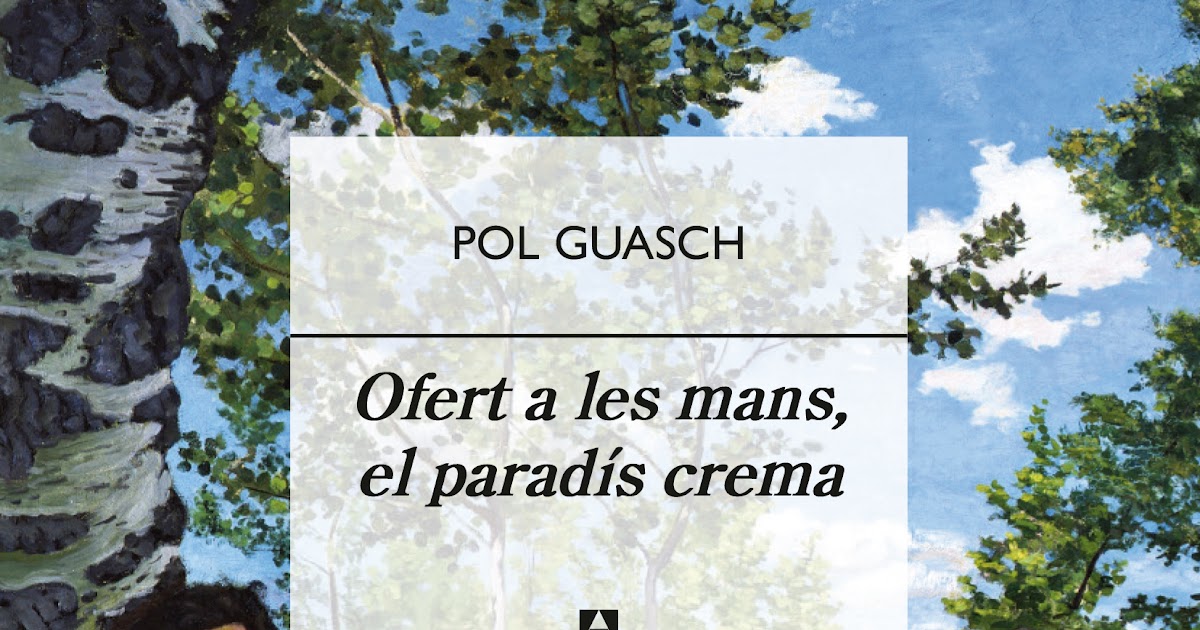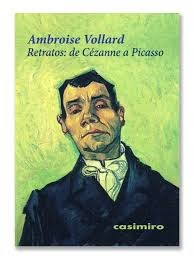
Original language: Catalan
Original title: Offered in the hands, paradise burns
Translation: date of translation into Spanish: June
Year of publication: 2024
Valuation: highly recommended
I was really looking forward to this book by Pol Guasch. I was curious to know where he would take us this time, to what mental landscape he would direct us, what physical and especially emotional territories he would open before us where we could enter and find ourselves, because his style and depth surprised and excited me, not only in his poetry but also in his previous novel “Napalm in the heart.”
True to his reflective style, the book begins with an assertion, which hovers like a sigh: “All lives begin before we are born,” and with this he tells us how now, twenty-four years after being born, he can affirm without embarrassment that ” I am convinced that my tiny body, hidden in the dark side of my mother’s womb, was incapable of awakening any feeling” confessing to us at the same time that “that is also what my story is about: time.” A time that translates into memories of the past, in the course of one’s life, but also in a friendship, in a love relationship, in a family. A short but intense time, marked by pain and great sorrow with which the author impregnates the reading, little by little, letting it penetrate us inside.
As a great hymn to friendship and love in all its dimensions, the story is based on the relationship between two friends, Líton and Rita, he residing in a town after having lived in the city, she in the Colony, “a handful of houses on the top of the mountain” where “the miners lived with their families. There were older people, there were tired people. Rita, the new miner’s daughter; Liton, the newcomer. A friendship between two young people “tired of themselves, of the thoughts that each one carries”, a relationship between two people who share loneliness and sorrows, who fit into a world that seems to expel them, and who understand each other, who would talk for hours together, that “they would talk about how it is necessary to imagine a little in order to live and how stories, by repeating them so much, become true.” A friendship that is nourished by conversations about life, about social classes, about the love of which he affirms that “few things can be said about love, when you are in it, because everything is clouded with the fog of emotion, and few things , when you go out, because everything is clouded with the fog of sadness. And, in those meetings, both confirm the reason for their friendship, because they feel comfortable in each other’s company, because, although different, they are similar in their way of understanding themselves, in conversations, but also in silences, because “it is as if both had learned the same lesson: that silence is not about the absence of noise, but about finding an exact corner where the soul and body can rest.”
At a stylistic level, Pol Guasch alternates narration in first and third person, and weaves a coherent but disordered story because “people do not know that stories, if they are ordered, are not stories, they are lies.” Thus, the style and tone of the narrator changes with each chapter, offering the reader a mosaic of different voices that the author knows how to take advantage of by exploring and playing with the language, which is refined or becomes coarser depending on the chapter, thus offering a glimpse of a wide spectrum completing a story that, although it is narrated by few voices, is choral. It is in this aspect that he seems to momentarily approach the style of Irene Solà, in the variety and chromatic plurality of the narrative (especially marked in the chapter “candles and winds”).
Argumentatively, the book overflows with nostalgia and sadness, a nostalgia for the Colony and its landscape, once beautiful and precise, before the fires and floods erased its beauty because “the fire, like an immense shovel, equalizes the landscape.” Nostalgia on the part of older people towards youth, for their joy, their self-confidence and their carefreeness. Nostalgia also for the friendship in its beginnings, in those moments when “they still didn’t know what they felt for each other, but rather what they felt for anyone other than themselves.” But especially nostalgia in Líton thinking about René, with whom he had a relationship in the Service that ended when it ended. René, the service boy that she met unexpectedly and who instantly shook her and made her fall in love. Someone for whom feelings would come after the fleeting discovery of him, of him and of his body, in a love that grows in the silence of an environment hostile to them, in the clandestinity of a military barracks. But they dream, and they feel free, being able to “pretend that they could build a new story”, keeping their relationship hidden from others, due to their condition, their environment, and because “words of love are only great and powerful when lovers “They say it to each other: crumbly love when others start to hear it.” And it is also, tangentially, about illness and death, a death that grows silently inside, because “you can’t help but wonder which of you will carry it inside without knowing it, which of you will soon be left without a friend, without a brother, without a lover. You can’t help but wonder if death dances here too, tonight. And it talks about how to survive a loss, physical, emotional. Overcome memory while fighting against oblivion.
In short, this novel by Pol Guasch has an uncertain beginning, perhaps like life and also death. Because, with friendship, those are the pillars on which this great novel emerges and rises, not in a planned way, but in an organic, natural way, in fragments that fit in the mind of the reader who composes in his head, but especially in its heart, the world that surrounds Líton and Rita, so united in their loneliness, so fragile before the world, but so strong in their lives. It is the story of a friendship full of silences and company, of searching in the other and finding in oneself the closeness of feeling heard and understood in a world that moves away, perhaps being swept away by a storm or a fire, leaving in its wake two mismatched souls, but completely synchronous. And, after the pages that advance slowly at first, but fly once René enters the story, the author leaves us a novel full of sadness, but also a deep feeling that life is ephemeral and it is only life if we manage to share it. with those who spread that net on which to fall when the hole of sadness and loneliness open in such a way that only by reaching out to our close people can we avoid falling into the abyss. Because “a friend, or a friend, it doesn’t matter, they must be the net on the tightrope that is being alive.”
In the final section of the book, Rita states that “she had known how to see in Liton’s smile the place where she wanted to go.” There is no doubt that Pol Guasch also achieves, thanks to his works, that the author manages to get where he wants, to get excited and understand himself, to question himself and reach those memories of what was and what will not be, because “sometimes love will be an accident and, sometimes, a will” that often appears unexpectedly and you have to embrace it when it does, whether in the form of friendship or a love relationship, without failing to remember that “loving each other is more like looking together a third thing not to look at each other.”
Also from Pol Guasch in ULAD: Napalm al cor, The fire part
Source: https://unlibroaldia.blogspot.com/2024/02/pol-guasch-ofert-les-mans-el-paradis.html


